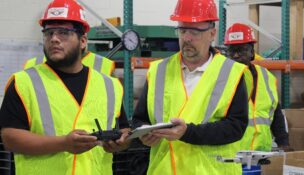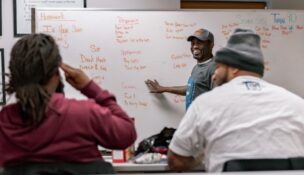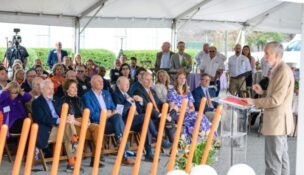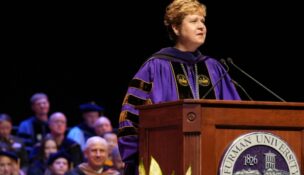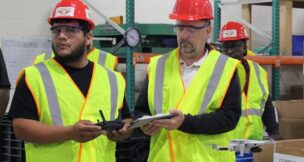Research a boost for workers with disabilities
Ross Norton //March 30, 2018//
A member of the Clemson University industrial engineering faculty has secured a $550,000 award from the National Science Foundation that promises to boost career options for people with disabilities while augmenting the workforce for employers like the Walgreens Distribution Center in Williamston.
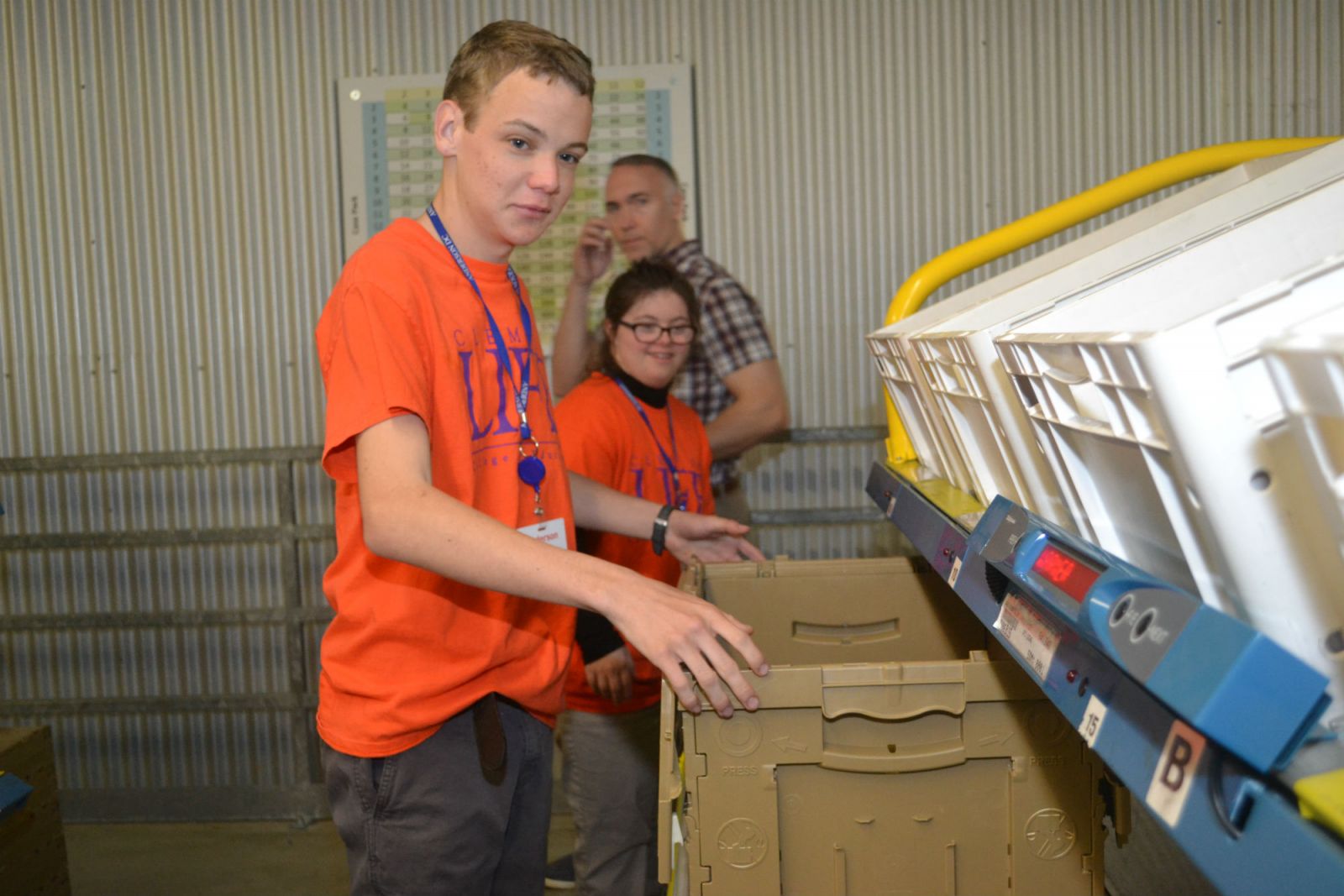
Sara Riggs’ research starts with figuring out how technology on workstations can adapt to workers depending on the person, context and environment. She plans to collaborate with Walgreens and ClemsonLIFE, a program for students with intellectual disabilities, to apply her ideas to real-world work places.
Riggs, an assistant professor of industrial engineering, recently launched the five-year research project from the Walgreens center, where she hopes to make jobs easier for all employees, enable more people with disabilities to work, and retain them once employed.
The Williamston facility is one of 17 Walgreens distribution centers in the United States and Puerto Rico. The company has long been a champion of providing opportunities for people with disabilities. The company goal is to build a distribution workforce in which 20% of its employees are working with disabilities. Today, that number is 14%.
An example of the types of questions that Riggs plans to address can be found in the red blinking lights that helped alert the students in the training rooms to bins that were ready to be packed.
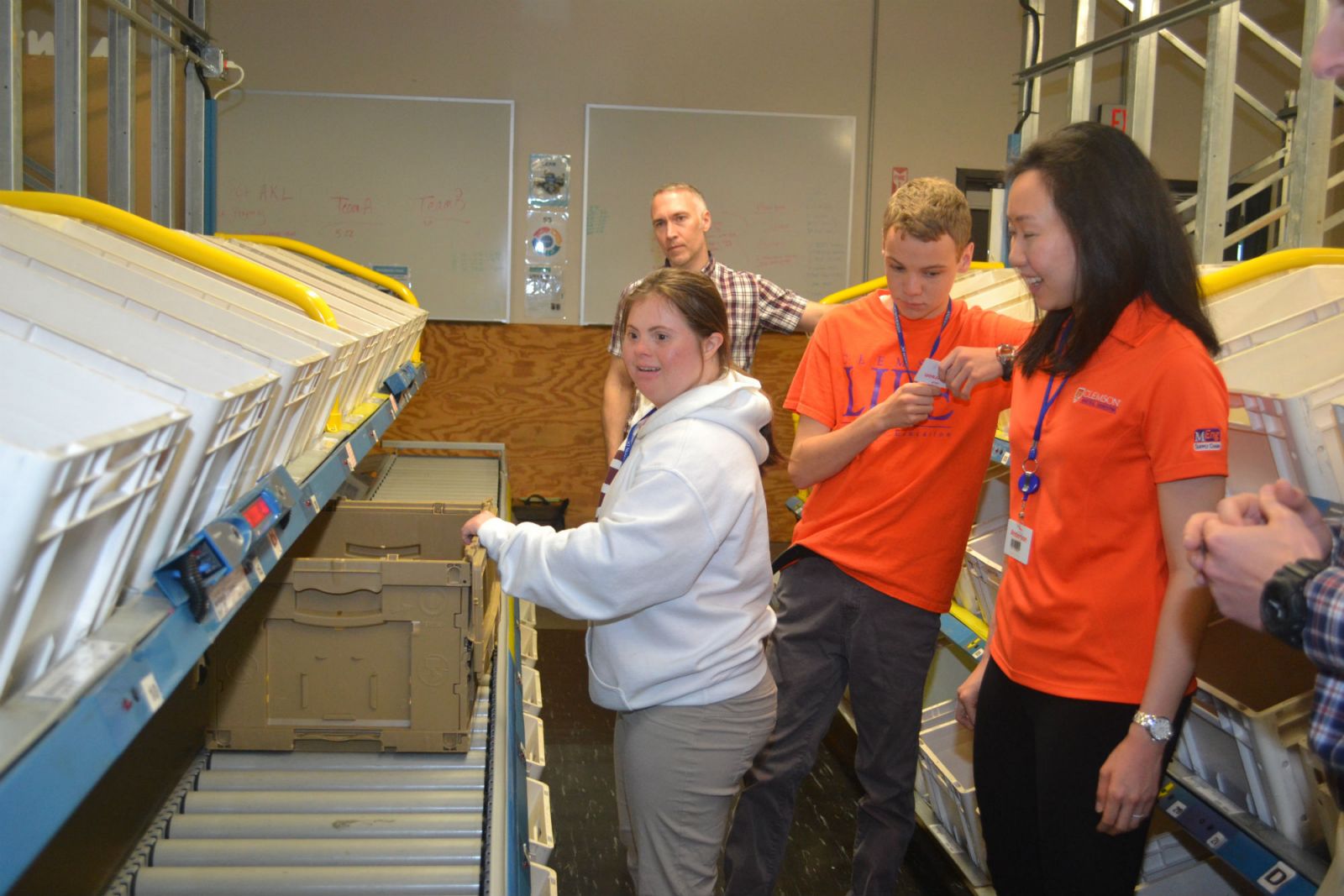
“We might find that if you’re color blind that red may not be best blinking light because you might miss that,” she said. “There may be other ways to indicate that, either adding a sound or maybe changing the color. We’ll be developing the predictive algorithms that would adapt the displays for the user instead of having one solution that fits all.”
According to the Walgreens company philosophy and practice, employing people with disabilities is good for individual, good for society and good for business.
“You put it in place for someone with a disability, but it could really help everybody,” Joe Wendover, the field inclusion manager for Walgreens, said in a statement. “We’re all about that. A happy employee is a good employee.”
The Walgreens Distribution Center in Williamston plays a central role in keeping 1,026 Walgreens stores from Washington, D.C., to Florida stocked with merchandise. The jobs come with some of the best benefits and pay available to ClemsonLIFE students, said Joe Ryan, the Stanzione Distinguished Professor of ClemsonLIFE and the program’s director.
s





